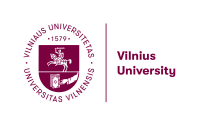Browse thousands of healthcare degrees from around the world.
What do you want to study?
Where do you want to study?
Start your education journey here
Discover
Browse thousands of degrees from around the world
Compare
See programs side by side to find the right one for you
Connect
Contact the schools' admissions offices directly
Skip all disciplines
Discover programs by discipline
Nursing Studies
Global Healthcare
Medical Studies
HealthcareStudies
Biomedical Studies
Allied Healthcare
Mental Healthcare
Pharmaceutical Medicine
Healthcare Technology
Physiotherapy



















